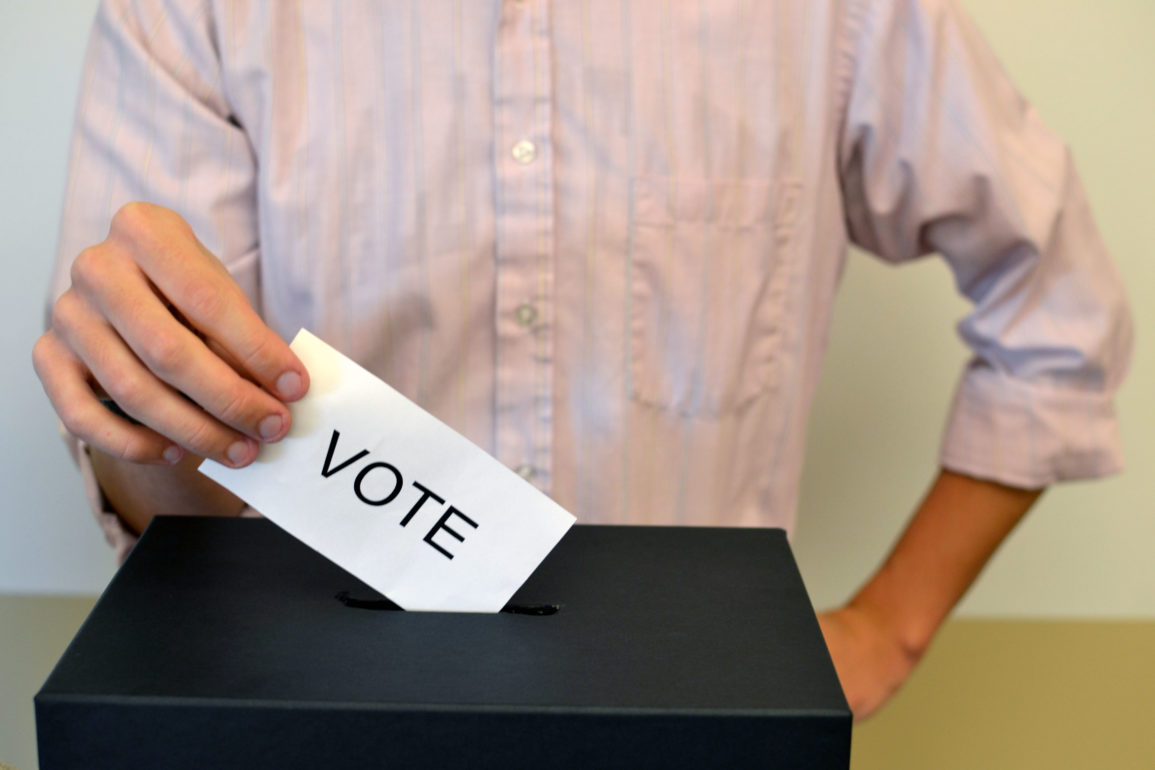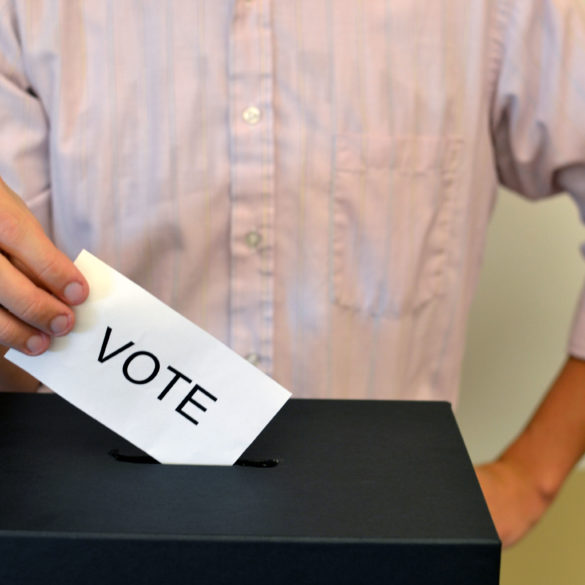The Millennial generation has shown increasing interest in voting, and this generation may have the biggest effect on the country’s political future.
The 2016 general election marks the first time the majority of the Millennial generation will be able to vote, but more than that – the winning candidate will not succeed without their support.
Eighty percent of the Millennial population in America intends to vote in the general election this fall, amounting to a little more than 60 million people, according to a survey conducted by Niche in 2014. Millennials already narrowly outnumber the Baby Boomer generation, but as more of them come of age, their political influence begins to hold serious sway.
Daniel Reagan, the department chair of political science at Ball State University, applied some historical context to this notion, skeptical of the statistics.
“The younger an American is, the less likely she’ll turn out to vote, so generally speaking, younger, and economically poorer people are less likely to actually vote,” Daniel said. “So in terms of their impact on the election, seasoned political pros always worry about young voters [so] they spend time trying to attract them. As a group, they just don’t turn out.”
Despite this trend, Daniel said there is evidence that when properly engaged, younger voters are not an impossible demographic, referencing Barack Obama’s presidential campaign in the 2008 election. He said that with the aid of digital media, President Obama appealed to the younger generation in a way that previous candidates had not, and it contributed to his election.
“That traditional truth has been changing a bit as of lately,” he says, “but it’s not clear if the change is permanent or how dramatic it will be.”
U.S. Government Census data suggests that young adults typically have a low voting turnout, but in recent years, voting in 18 to 24-year-olds has been on the rise. Of those going to to polls, the Niche survey says that the majority of them plan to vote Democrat, with 50 percent indicating democratic frontrunner Hillary Clinton, and 24 percent indicating another democratic candidate.
So, why the overwhelming sentiment for the left?
The primary reason so many young people identify with the democratic cause seems to be that leftist candidates address their chief concerns, more so than their counterparts on the right. A survey conducted by Fusion polled Millennials on what they want their next president to address, and the top three issues were economy and jobs at 19 percent, healthcare at 10 percent, and education at seven percent; seemingly appropriate for an age group with a daunting unemployment rate and high levels of student debt.
In her official platform outline, Hillary Clinton has already voiced her intent to work toward making jobs, affordable healthcare, and affordable education available to everybody, echoing many of the same policy ideas as the Obama administration.
Even further left than Hillary, Vermont Senator Bernie Sanders is the leading challenger for the Democratic nomination. Senator Sanders is a self-declared Democratic Socialist, and proclaims the most outwardly liberal agenda of anybody in the presidential race. At the core of his campaign, Senator Sanders voices his intent to fight wealth and income inequality, money-driven politics, and job shortages, as well as more controversial issues like racial injustice, all of which other candidates have avoided thus far.
In a September poll conducted by ORC International, Hillary still leads over the Senator among democratic voters at 42 percent favorability, compared to his 24 percent. Earlier polling from the same group suggests that gap is widening in Hillary’s favor, but that comes as current Vice President Joe Biden considers a late entry into the presidential race, which would further offset the numbers.
At the opposite end of the political spectrum, the Niche poll indicated 39 percent of Millennials intended to vote for a Republican candidate in next year’s election.
Ball State College Republicans chairman Joshua Marsh is part of the statistical minority of Millennials that consider themselves politically conservative.
“It makes me want to work harder; I’ve got to change their minds,” he said of the liberal majority in his generation. “There was a saying that I’ve heard multiple times that ‘liberals are young conservatives,’meaning that as you grow older, the trend is to become more conservative.”
Within that majority, Ball State graduate student Todd Blevins says he plans to vote for a democratic nominee in next year’s election. He said that he has mixed feelings about the American political system, questioning whether it is a good way to enact social change.
“It’s tough to identify where to place blame in the voting system,” Todd said. He believes Millennials don’t vote because they don’t believe in the “cynical” political campaigns.
Despite their disposition though, Todd says that Millennials still hope for the best.
“I think that we’re a generation that, despite all the cynicism and frustration that we have, we still try to go after new ideas and new goals. We want to believe that things can be better and that things can work out for everybody.”
So does this detachment from traditional politics apply to everybody, or just a disillusioned few? A survey conducted by the Pew Research Center in 2014 said that 50 percent of Millennials consider themselves political independents that are unaffiliated with a traditional political institution. This is up 10 percent from the same survey taken in 2007, marking the largest jump of any of the generations represented in the study.
Daniel, examined this question using a political science philosophy.
“Generally what’s said of Millennials is that they say they’re less interested in traditional politics than the generations that came before them, including the ones that immediately came before them.” Daniel said. “But on the other hand, they’re very sort of civic-minded, and kind of public-spirited; they tend to shun joining with political institutions and existing organizations.”
For the first time, Millennials have the opportunity to use those traditional channels to make themselves heard. What remains to be seen is whether they will continue the trend of turning out to vote in low numbers because of their dissatisfaction with the system, or whether they will make the compromises necessary to use their influence to its full potential. Regardless of how it turns out though, this time it’s serious.




